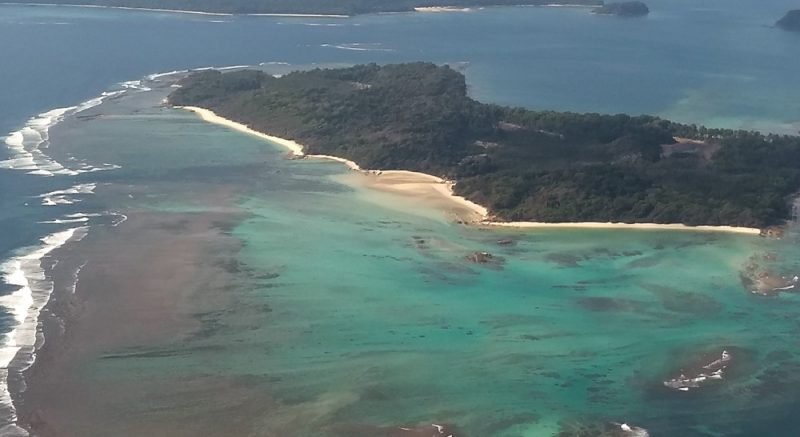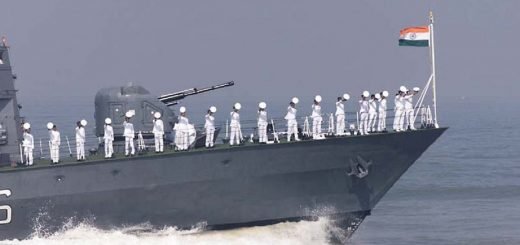South China Sea: A Concernment for India

In Indian mythology, the ocean is considered as the primaeval cradle for an ascent of the universe. Resourceful water bodies have become a bone of contention. Their importance is running on the ascending wheel. The South China Sea is supporting this argument. The quibbles in the South China Sea have dominated headlines. It entails tremendous strategic importance. It has formed the core of a vehement territorial hassle among six primary claimants: Brunei, China, Malaysia, the Philippines, Taiwan, and Vietnam. These claimants are also fighting over their rights and duties in the nearby waters as well as the seabed underneath. The quibbles in the South China Sea have the capability to enkindle a broader regional conflict. Many claimants purport over the upshot of sovereignty not gullible to easy legal resolution. Worse, the stakes are high: the Sea is one of the primary routes for international trade, and many claimants believe that the Sea hides munificent oil reserves in addition to its bounteous fishing stocks. The hassles are further enrooted by rampant nationalism, as each claimant attaches symbolic value to the South China Sea islands that far exceeds their objective material wealth. And, the quibbles are also tinged by great power politics as China and the United States begin to push each other for stewardship of the international order.

Here, the concernment is China’s maritime claims in the South China Sea and they are of puzzling nature. Since 1949, China has enthralled itself in many territorial hassles with its neighbours.
In August 2020, A Chinese ambassador, Duan Jielong has been elected as a Judge to the International Tribunal for the Law of the Sea (ITLOS). The Tribunal is an independent judicial body based in Hamburg, Germany. It was established in 1996 under the United Nations Convention on the Law of the Sea (UNCLOS).
It focuses on hassles on the interpretation and application of the convention, and 168 countries are party to this convention. The convention elects a 21-seat tribunal. Elections to seven seats has been held, and Chinese ambassador Duan Jielong was elected to one of these seats, and his term begins on October 01. This is spiny as Beijing’s track record tells of violating the law of the sea more than any other country. It boycotts court hearings on maritime quibbles and does not endure international verdicts.
Also, China conducted live-fire drills in the South China Sea in a challenge to U.S. freedom of navigation operations. And they are taking place off the Leizhou peninsula, in Southern China, in the northwestern part of the South China Sea. This is not far from Vietnam which is locked in a territorial dispute with Beijing over Spratly islands. China has warned Civilian vessels not to enter the sea. And this is the incipience of the potentially dangerous notch against UNCLOS (United Nations Convention for the Laws of the Sea).

The UNCLOS and its Concern
UNCLOS, as a law of the sea, came into operation and became effective from 16th November 1982. They are binding completely. The law of the sea provides for full money rights to nations for a 200-mile zone by their shoreline. The sea and oceanic bed aggrandising this area is regarded to be Exclusive Economic Zone (EEZ) and any country can use these waters for their economic utilisation. The main reason for disagreement over the law of the sea arises mainly because of its disagreement about Part XI of UNCLOS. This part deals with the aspect of the minerals found on the seabed on the EEZ. The International Seabed Authority was established on the basis of this part of the nautical law and called for the even-handed distribution of the proceeds of such seabeds. Both China and the USA have a disagreement over these laws of the Sea.
India and The south China Sea
The South China Sea is one of the most toilsome and pugnacious maritime strifes in the Asia Pacific. China’s emphatic posture in the South China Sea is of great perturbation especially with India unfolding its Act East Asia Policy. Indian Navy 2007 Doctrine defined “South China Sea as an area of strategic interest” for India. The Modi Government has realised the significance of the South China Sea both in terms of its geo-economic and strategic interests. To further accentuate the relationship with South-East Asian countries, India vows to be a plausible security provider. At the 2014 East Asian Summit, India along with the United States and Vietnam avowed its support to safeguard maritime security and freedom of navigation. Further, India has been very vocal in settling the hassle through peaceful means and in accordance with the UNCLOS.
Several reasons have been imputed to India’s interest in the South China Sea (1) The expanded trade with East Asia and the prudence for recognition on the Sea Lanes of Communication (SLOC) from the Indian side beyond its geographical extent and the significance of the Indo-Pacific region (2) Abating reliance on the major powers for India’s affirmed maritime concerns (3) India’s perturbation of increasing China’s strenuous in the Indian Ocean region (4) The significance of forwarding maritime presence and naval partnership is seen exigent to deter India’s antagonists in the region (5) Securing the trade-transit route which passes through the South China Sea, all vital to India’s growing trade, energy and security interests (Raja C Mohan, Samudra Manthan).
Finally, these squabblings over the Laws of the Sea are a rich source of lessons for India. With India’s maritime colloquy accumulating and 55% of India’s trade passing through this region, it is importunate that New Delhi follows its interest in the region. The Indo-Pacific trilateral with India, Japan and the United States will further resuscitate India’s presence in the region. The adoption of the Indo-Pacific region into the strategic configuration has cumulatively summed up the pertinence of the South China Sea for India. It has become a level playing field for big powers. And New Delhi has to turn up with a good maritime strategy in the South China Sea.



















